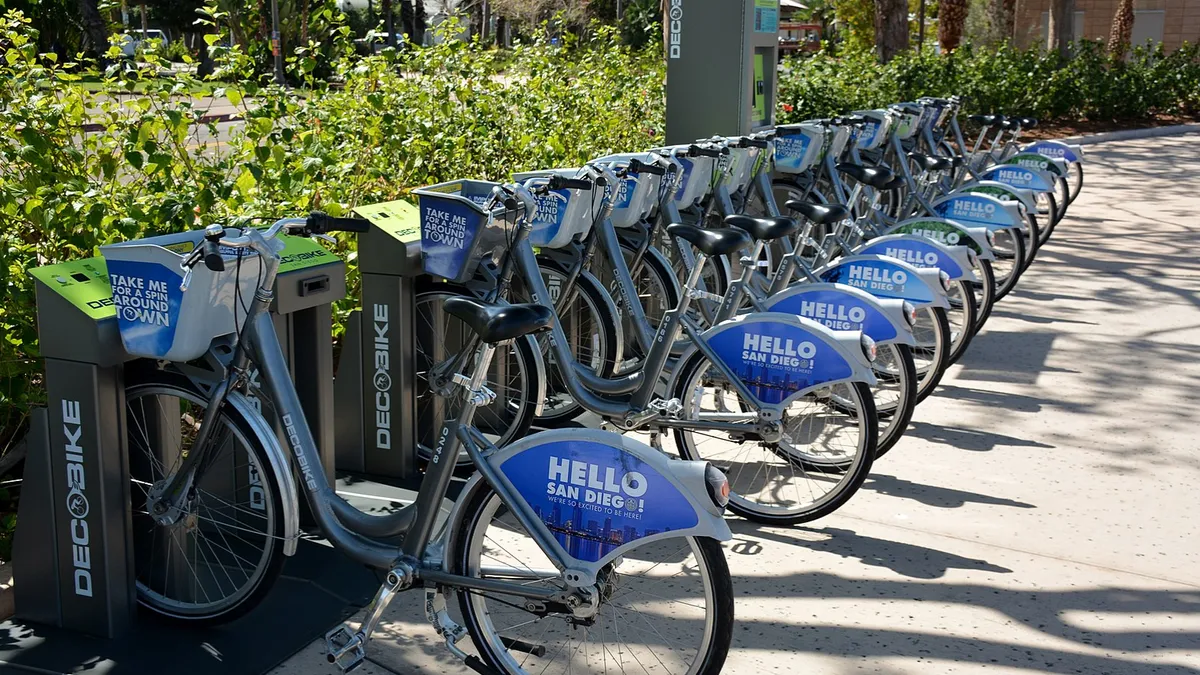Dive Brief:
- San Diego might forego allowing permits for dockless bike-share providers because of an existing contract it has with traditional bike-share service DecoBike, reports The San Diego Union-Tribune.
- City leaders believe the exclusive contract, which runs through 2023, may prevent them from allowing all bike-share competitors into the market.
- The city attorney has been asked to determine if granting permits to dockless bike-share companies would violate the contract. No timeline has been announced for a decision.
Dive Insight:
Leaders in San Diego currently are facing criticism on all sides of the bike-share debate. Proponents of dockless bike-sharing systems note that San Diego appears hamstrung by its deal with DecoBike and that's hindering the city's progress. Some criticize the city for considering the rejection of a sustainable option that could help to reduce emissions and get the city closer to pedestrian and bike-use goals laid out in its Climate Action Plan. Opponents of dockless bike share point to a variety of general knocks on dockless systems, including a lack of biking infrastructure and the possibility of inappropriately parked bikes littering streets and sidewalks. Some also claim that the city botched its attempt at a typical bike-sharing system — as evidenced by DecoBike's notoriously low ridership — and the same would happen with dockless.
San Diego isn't the only city navigating how best to proceed with permitting dockless bike-share systems when a traditional system already exists. San Francisco and New York both are experiencing dockless bike-share permitting challenges, including legal actions over exclusivity rights. San Diego's hesitance to permit any dockless systems right now could end up saving it from similar legal ramifications in the long run.
Still, the contract with DecoBike doesn't explicitly forbid San Diego from allowing dockless bike-share providers from entering that market, it merely says the city must support the company's efforts to market and increase ridership. Although dockless would create some competition for DecoBike, it's technically a different kind of system.
If San Diego refuses to allow dockless bike-share providers, it might end up being behind the curve on the trend that widely exploded in the United States this year. On the other hand, the delay also gives the city time to determine if the dockless trend has long-term staying power.
Although the city itself is holding off on dockless for now, other municipalities within San Diego County are not. Imperial Beach and National City have brought in LimeBike, and Coronado is considering doing the same. If the surrounding municipalities continue to accept dockless systems, that might put pressure on San Diego to follow suit. It also might create pressure to go with a service provider such as LimeBike that is already established in the area, rather than starting over by introducing another new company to the market.












